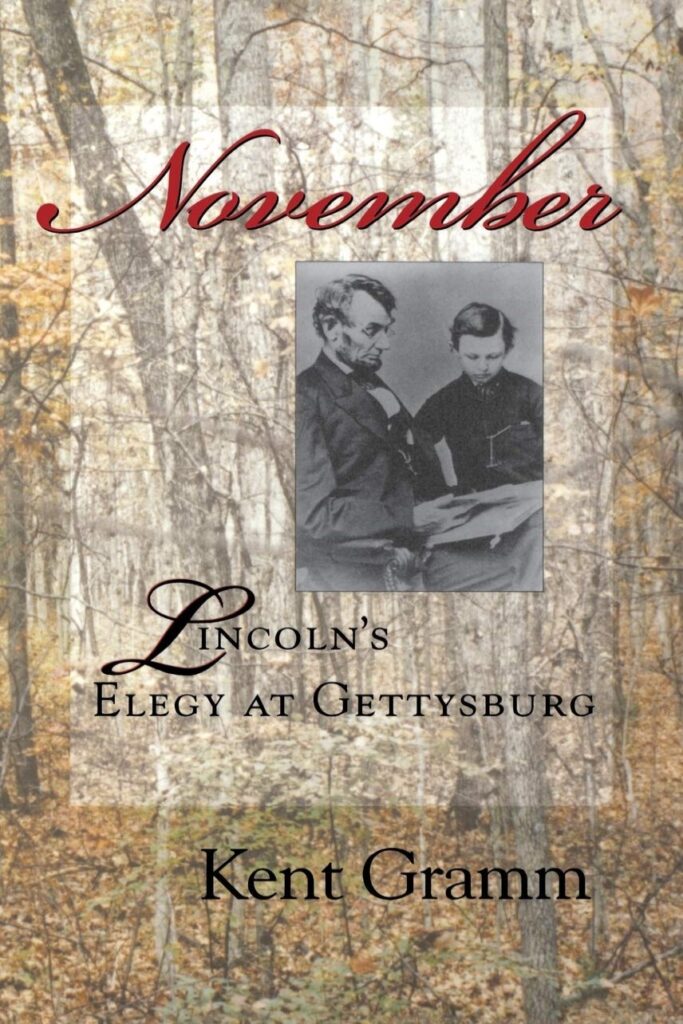November: Lincoln’s Elegy at Gettysburg
“Kent Gramm writes poetically. . . on how Lincoln may still speak to us in the bleak postmodernist era.”
Russell F. Weigley
“Using Lincoln’s Gettysburg Address as a framework, Kent Gramm offers meditations on events important and obscure that have occurred in November. The essays make us think about the deeper meanings of these events to us today. . . This is a book to read and ponder all twelve months of the year.”
James M. McPherson
The century that began with a short November address at Gettysburg and ended with the assassinations of the 1960’s saw the eclipse of the Modern world. Through the half-light of postmodernism, this book revisits such November events as the Armistice ending WWI, Kristallnacht, the assassination of JFK and the journey of RFK, the work of C. S. Lewis, and other events bearing upon the “new birth of freedom” that Abraham Lincoln left in our hands.

